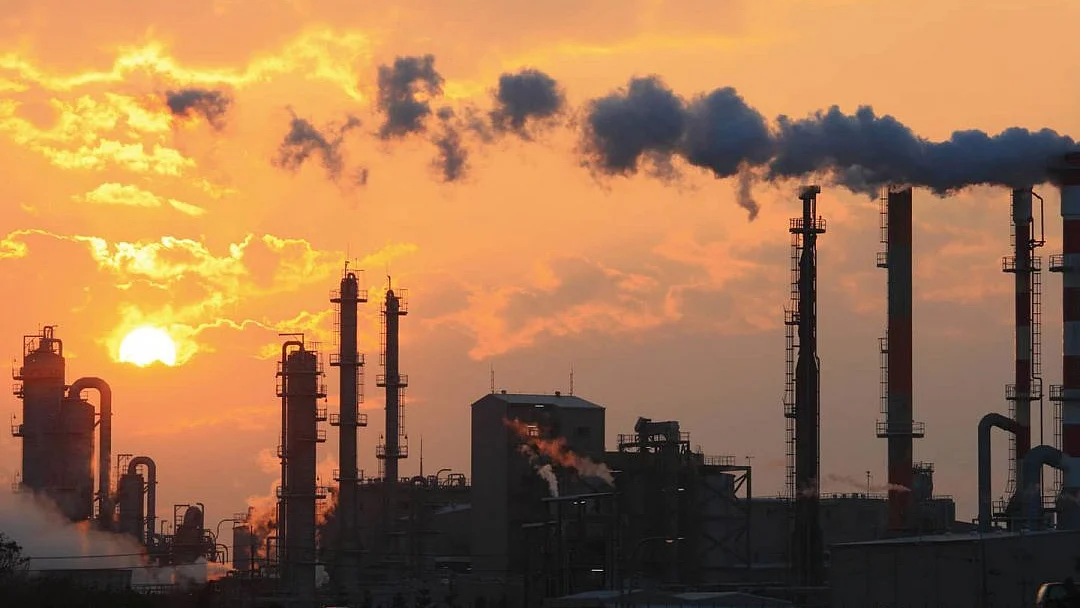More nations adopting air quality policies, gaps still high: UN body
A report based on recent survey data from 195 countries assesses policies and programmes in key sectors that contribute to air pollution: transportation, power generation, industrial emissions, etc

A global review of policies and programmes to improve air quality shows that over the past five years more countries have adopted policies on all major polluting sectors.
Yet large gaps in implementation, financing, capacity, and monitoring mean that air pollution levels remain high. This data was published on Tuesday, the International Day of Clean Air for Blue Skies, in a new report by the UN Environment Programme (UNEP).
The report, 'Actions on air quality: A global summary of policies and programmes to reduce air pollution', is based on recent survey data from 195 countries. It assesses policies and programmes in key sectors that contribute to air pollution: transportation, power generation, industrial emissions, solid waste management, household air pollution, and agriculture.
It also looks at air quality monitoring, air quality management and air quality standards as key policy instruments to mitigate the impacts of air pollution.
As of 2020, 124 countries (about two-thirds) were found to have national ambient air quality standards, 17 more than reported in 2016. However, only nine per cent of these adhere to the limits established by the World Health Organisation (WHO) guidelines.
The report finds that although low-income countries suffer more from air pollution, actions to reduce air pollution have multiple development benefits, including climate mitigation, agricultural productivity, energy security, and economic growth.
UNEP Executive Director Inger Andersen said: "When governments act on air quality, they help prevent seven million premature deaths annually. They also improve the overall health and economic well-being of 92 per cent of the world population that lives where air quality levels exceed World Health Organisation (WHO) limits.
"Today, we have more policies in place than ever before, but it is absolutely critical that we focus on implementation, especially where people are disproportionately affected by poor air quality."
Since 2016, when UNEP began tracking government actions on air quality, there have been improvements from industrial emissions, transportation, solid waste management, and household air pollution.
For the first time, the report also reviews current policies and programmes on agriculture, air quality management and standards.
Since 2016, 18 more countries have added new vehicle emission standards equivalent to Euro 4/IV or higher, bringing the total to 71 countries. Despite most low-income countries still lacking regulations for emission standards of imported used vehicles, a growing number of national regulations are emerging to reduce the maximum age of imported vehicles and incentivise citizens to get rid of old polluting vehicles.
For example, Morocco only permits the import of vehicles less than five years old and those meeting the EURO4 European vehicles emission standard; as a result, it receives only relatively advanced and clean used vehicles from Europe, in line with UNEP's recommendations.
It says 21 more countries have adopted policies for cleaner production bringing the total number of countries to 108 and 95 countries have programmes promoting clean cooking and heating, with 13 new countries compared to 2016.
This has led to lower rates of diseases born from household air pollution, mostly in South and East Asia and the Pacific.
Though it remains a widespread phenomenon, 26 more countries now strictly regulate burning of solid waste (bringing the total to 38 countries), including landfill gas capture, improved collection, the separation of waste and sound disposal methods.
Despite new clean air policies in countries worldwide and the steady decline of the burden of disease from household air pollution in some regions, health statistics suggest that ambient and indoor air pollution remain a leading global health risk factor.
To improve air quality, there would need to be better enforcement of existing policies and regulations, more substantial financing, and more widespread monitoring and stronger capacities.
The UNEP is calling on countries to incorporate investments in air pollution clean-up into their post-Covid-19 recovery plans. It is also calling for setting benchmarks to assess current and future actions towards cleaner air and to remove barriers in the implementation of policies and programmes, including financing and capacity gaps, and to overcome affordability and maintenance challenges of monitoring equipment.
Follow us on: Facebook, Twitter, Google News, Instagram
Join our official telegram channel (@nationalherald) and stay updated with the latest headlines
